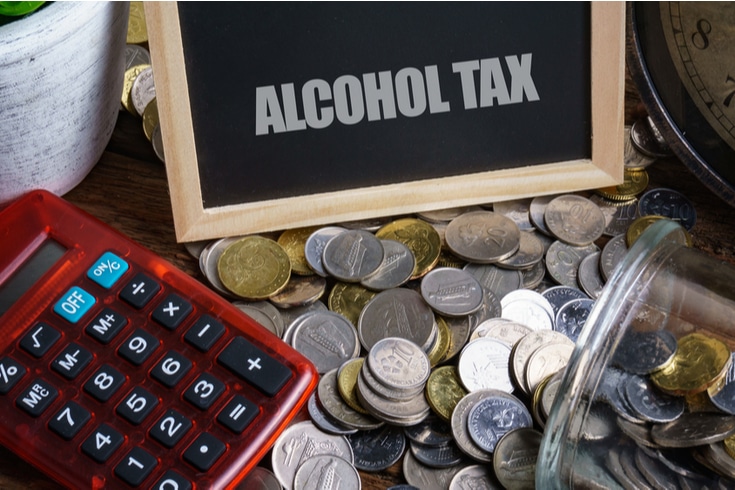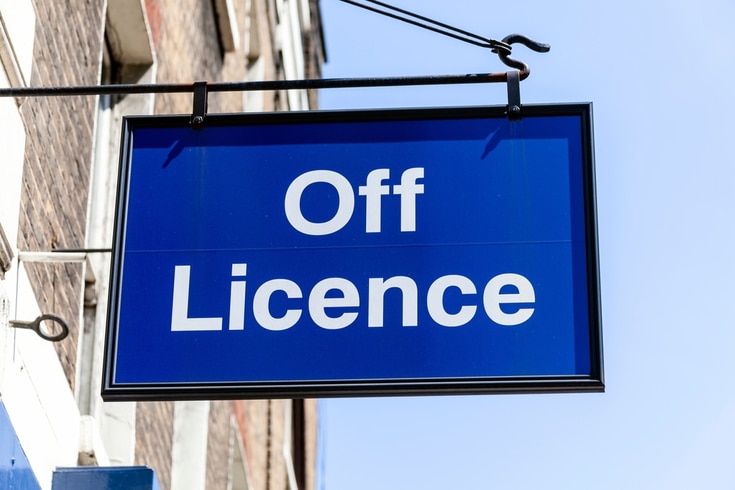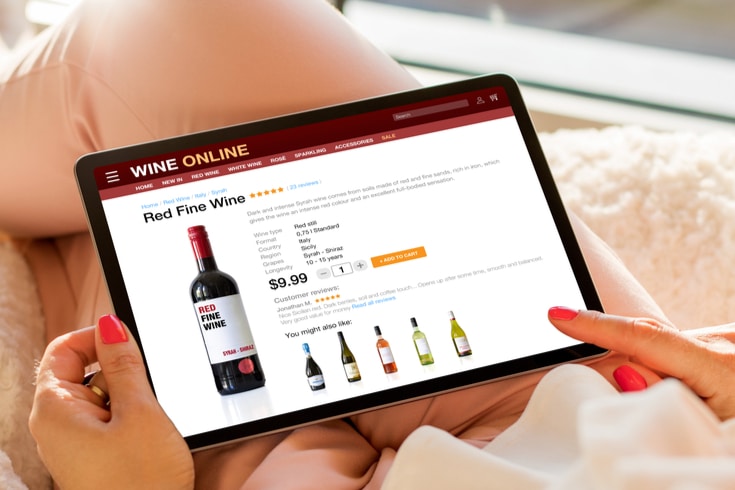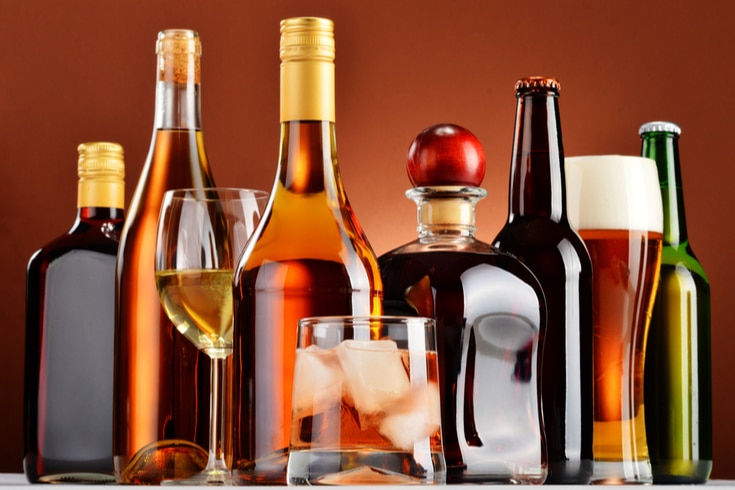Key Points to Note When Selling Alcohol Online: Explaining the Japanese Liquor Tax Law

Online shopping has become easily accessible to everyone. However, it is not widely known that there are various legal regulations involved in its establishment. So, is it possible to sell alcohol through online shopping?
When it comes to laws related to running an online shop, we can consider laws that apply to all online shops, such as the “Japanese Act on Specified Commercial Transactions”, “Japanese Unfair Competition Prevention Act”, “Japanese Act against Unjustifiable Premiums and Misleading Representations”, “Japanese Electronic Contract Act”, “Japanese Act on Regulation of Transmission of Specified Electronic Mail” and “Japanese Act on the Protection of Personal Information”, and laws that apply to specific industries. In this article, we will focus on the “Japanese Liquor Tax Act”, which is one of the laws that apply to specific industries.
https://monolith.law/corporate/onlineshop-act-on-specified-commercial-transactions[ja]
https://monolith.law/corporate/onlineshop-email-act-protection-of-personal-information[ja]
Japanese Liquor Tax Law
The difference between selling alcoholic beverages in a restaurant and in a liquor store lies in whether the alcohol is sold opened or unopened.
If you operate a restaurant and sell opened alcoholic beverages, you need to obtain a restaurant business license from the public health center based on the Japanese Food Sanitation Law. On the other hand, if you sell unopened alcoholic beverages by the bottle or barrel, you fall under the category of retail liquor business under the Japanese Liquor Tax Law, and a separate liquor sales license is required.
The Japanese Liquor Tax Law is a law for “imposing liquor tax on alcoholic beverages from the perspective of securing fiscal revenue”. In the Liquor Tax Law, “alcoholic beverages” refer to beverages with an alcohol content of 1 degree or more (including those that can be diluted with water or other substances to make a beverage of 1 degree or more, and powdered substances that can be dissolved in water or other substances to make a beverage with an alcohol content of 1 degree or more).
However, items subject to the Japanese Alcohol Business Law (including those that refine specific alcohol as defined by the law or dilute the alcohol content to less than 90 degrees, and are clearly intended for uses other than drinking) and alcohol-containing pharmaceuticals and quasi-drugs manufactured (including imported sales) with permission under the Japanese Pharmaceuticals and Medical Devices Law are excluded from alcoholic beverages under the Liquor Tax Law.
The Liquor Tax Law classifies alcoholic beverages based on their manufacturing methods and personalityistics into four types: effervescent alcoholic beverages (beer, sparkling wine, etc.), brewed alcoholic beverages (sake, fruit wine, etc.), distilled alcoholic beverages (whiskey, brandy, etc.), and mixed alcoholic beverages (mirin, liqueur, etc.). The law basically applies different tax rates for each classification.
Furthermore, the four types of alcoholic beverages are further divided into 17 categories of alcoholic beverages.
While a general liquor retail license or a wholesale liquor license allows you to handle all categories of alcoholic beverages in principle, a mail-order liquor retail license limits the types of alcoholic beverages you can handle.

Online Alcohol Retail License
In the alcohol manufacturing and sales industry, a licensing system is adopted to ensure the accurate collection of liquor tax and its smooth transfer to consumers.
If you intend to sell alcohol, you need to obtain an alcohol sales license from the head of the tax office in the jurisdiction of each sales location, based on the provisions of the Japanese Liquor Tax Law. This alcohol sales license is categorized according to the sales destination and method. Among them, the license that allows you to retail alcohol online, that is, through mail-order sales (targeting consumers in a wide range of areas, presenting the content of the product, sales price, and other conditions via the internet or catalog delivery, and accepting purchase contract applications via mail, telephone, or other communication methods in accordance with the presented conditions) is the “Online Alcohol Retail License”.
With the Online Alcohol Retail License, you cannot conduct over-the-counter retail sales of alcohol (accepting applications for alcohol sales contracts at the store, or delivering alcohol at the store) or retail to consumers in only one prefecture.
Furthermore, to maintain the balance of supply and demand for alcohol for the preservation of liquor tax, the range of alcohol that can be sold online is limited to the following:
- Alcohol produced and sold by manufacturers of domestic alcohol, where the annual taxable shipment quantity for each item is less than 3000 kiloliters.
- Alcohol that uses local specialties (limited to specialties from the region where the consignor is located) as raw materials and is consigned to manufacturers other than specific manufacturers, and the total consignment quantity is less than 3000 kiloliters.
- Imported alcohol (there are no restrictions on the type or quantity of imported alcohol).
As such, the Online Alcohol Retail License does not allow you to sell all types of alcohol.
通信販売酒類小売業免許の要件
In order to obtain an Online Alcohol Retail License, the applicant, the applicant’s legal representative, the officers of the applicant corporation, the manager of the proposed sales location, and the proposed sales location itself must meet the following requirements:
- Personal Requirements (Japanese Liquor Tax Law Article 10, Items 1-8)
(1) If the applicant has had their manufacturing license for alcoholic beverages or their alcohol sales license, or their Alcohol Business Law permit revoked, three years must have passed since the date of the revocation.
(2) If the applicant was an officer executing the business of a corporation that has had its manufacturing license for alcoholic beverages or its alcohol sales license, or its Alcohol Business Law permit revoked, and this occurred within one year prior to the date of the cause for the revocation, three years must have passed since the date of the revocation.
(3) The applicant must not have received a delinquency disposition for national or local taxes within the two years prior to the application.
(4) If the applicant has been fined or received a notification disposition for violating laws and regulations related to national or local taxes, three years must have passed since the completion of the execution of the fine, or the day when it became unnecessary to receive the execution, or the day when the content of the notification was fulfilled.
(5) If the applicant has been fined for violating the provisions of the Underage Drinking Prohibition Law, the Law Regulating Adult Entertainment Businesses and Promoting Their Proper Operation (limited to the part related to providing alcohol to persons under 20 years of age), the Law Preventing Unfair Acts by Organized Crime Group Members, the Penal Code (crimes of injury, aiding and abetting at the scene, assault, preparation and assembly of weapons, intimidation or breach of trust), or the Law Punishing Violent Acts, three years must have passed since the completion of the execution of the fine, or the day when it became unnecessary to receive the execution.
(6) If the applicant has been sentenced to imprisonment or a heavier penalty, three years must have passed since the completion of the execution of the sentence, or the day when it became unnecessary to receive the execution.
2. Location Requirements (Japanese Liquor Tax Law Article 10, Item 9)
The applicant must not be planning to set up a sales location in a place deemed inappropriate for regulation without a legitimate reason.
- Management Foundation Requirements (Japanese Liquor Tax Law Article 10, Item 10)
The applicant must not have received a decision to commence bankruptcy proceedings without having regained their rights, or be deemed to have a weak management foundation.

Bookkeeping Obligations under the Japanese Liquor Tax Law
Alcohol retailers are required to record the following details related to the purchase and sale of alcoholic beverages in their books:
For purchases, the following details must be recorded, categorized by type of alcohol and applicable tax rate (such as alcohol content):
- Quantity purchased
- Purchase price
- Date of purchase
- Address and name or title of the supplier
For sales, the following details must be recorded, categorized by type of alcohol and applicable tax rate (such as alcohol content):
- Quantity sold
- Selling price
- Date of sale
- Address and name or title of the buyer
These records must be kept on hand at all times for each sales location, and must be preserved for five years after the books are closed.
Preventing Underage Drinking
When selling alcoholic beverages online, the following notices must be displayed:
- In advertisements or catalogs related to alcoholic beverages (including those on the Internet), a statement such as “Drinking under the age of 20 is prohibited by law” or “We do not sell alcoholic beverages to persons under the age of 20” must be displayed.
- In documents such as order forms for alcoholic beverages (or on the order screen when orders are placed online), an age entry field for the applicant must be provided, and in a location close to it, a statement such as “Drinking under the age of 20 is prohibited by law” or “We do not sell alcoholic beverages to persons under the age of 20” must be displayed.
- In documents such as delivery notes (including notifications via the Internet), a statement such as “Drinking under the age of 20 is prohibited by law” must be displayed.
The “Japanese Minor Drinking Prohibition Law” prohibits alcohol sellers or food and beverage businesses from “knowingly selling or providing alcohol for consumption by persons under the age of 20” (Japanese Minor Drinking Prohibition Law, Article 1, Paragraph 3). Violation of this prohibition can result in a fine of up to 500,000 yen. In addition, there is also an obligation to “take necessary measures to verify age” (Japanese Minor Drinking Prohibition Law, Article 1, Paragraph 4).
Furthermore, in response to this, the “Japanese Liquor Tax Law” stipulates that if an alcohol seller is fined for violating the Minor Drinking Prohibition Law, their alcohol sales license may be revoked.

Summary
The necessary license for online alcohol sales, the Japanese Online Alcohol Retail License, is granted by the local tax office in the area where you intend to obtain the license. You must apply and, if there are no issues after review, the license will be granted. Generally, this process takes several months from the time of application.
It is essential to understand the laws and regulations necessary for operation and to apply in advance.
Guidance on Measures by Our Firm
Monolith Law Office is a legal office with high expertise in both IT, particularly the internet, and law. In recent years, the need for legal checks surrounding online shopping has been increasing. Taking into account various legal regulations, our firm analyzes the legal risks associated with businesses that have already started or are about to start, and we aim to legalize them as much as possible without stopping the business. Details are described in the following article.





















